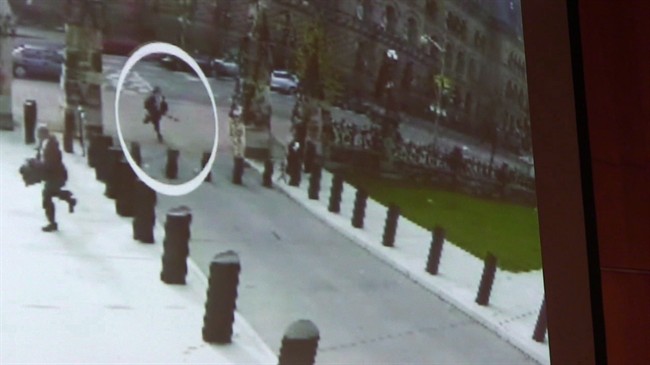OTTAWA – A federally funded study of young people who embraced radical jihadism found they had little else in common, suggesting efforts to discourage extremism must be flexible and tailored to individual cases.

“Terrorist Chatter: Understanding What Terrorists Talk About” examined the online activities of seven men who were born or raised in the United States and active in the jihadist scene.
All seven were either convicted of terrorism-related offences or, in two cases, killed in extremist-related incidents.
READ MORE: Activists turn to social media to fight jihadists
The study by U.S. firm Flashpoint was funded through the federal government’s Kanishka program, a terrorism research effort led by Public Safety Canada that flowed from the recommendations of the inquiry into the 1985 Air India bombing.
The Canadian Press obtained the study under the Access to Information Act.
Flashpoint compiled 1,871 online posts written by the seven men in various open forums over several years. Some were extremely brief, others more than 10,000 words. The researchers assigned them to three main categories: social, religious and political.
The researchers stress that their work cannot claim to be a complete analysis of the views of the seven individuals, let alone a comprehensive overview of what all terrorists discuss and believe.
READ MORE: Conservative spokesman defends use of ISIS video in attack ad
But they hope it will help guide authorities – including Canadian agencies – in devising counter-radicalization programs aimed at dispelling extremist thought and dissuading young people from joining Islamic militants overseas.
Concern about adoption of radical beliefs has only deepened since two Canadian soldiers were killed just days apart last October by jihadi-inspired “lone-wolf” attackers.
The authors say radicalization is a highly complex and individualized process, often shaped by a poorly understood mix of factors. “It is no surprise then that counter-radicalization initiatives are equally complex.”
While all seven subjects shared a common background, it appeared from their online activities that their interests, views and approaches were highly varied.
READ MORE: Tunisia launches nationwide manhunt for attack accomplices
Some were more focused on religion, while others were more into politics, the study says. Some immediately adopted a jihadist mindset and others took much longer to come to these views.
“Given this diversity, it becomes obvious that any counter-radicalization needs to be tailored to the specifics of the case. Flexibility is the name of the game.”
Another main finding was that, at least early on in their conversion, the men were all “avid seekers of knowledge and information on religion.”
The authors say the study confirms the importance of the religious aspect of jihadism for many who advocate violence – an element dismissed by some research.
“Any counter-radicalization effort, while not ignoring other aspects, should take into consideration the centrality of religious issues for those embracing jihadism,” the study concludes.
The men interested in religion were “extremely inquisitive” during the first stages of their radicalization, seeking sources and opinions on spiritual matters from fellow online posters.
“In the late stages, instead of questions, statements appear, often filled with confident pronouncements of their own knowledge,” the study says.
Conspiracy theories abound in such online forums, the authors note, but three of the men vehemently denied suggestions that western governments – not al-Qaida – were behind the 9-11 attacks and the July 2005 assaults in London.
One of the seven, Tarek Mehanna, born in Pittsburgh to Egyptian parents, used biting sarcasm to dismiss such notions in a 2005 posting.
“There is unanimous agreement that it is not Muslims that carry out these attacks – nay, not even human beings; rather they are Martians who come to Earth to cause all of this havoc in preparation to take it over.”



Comments